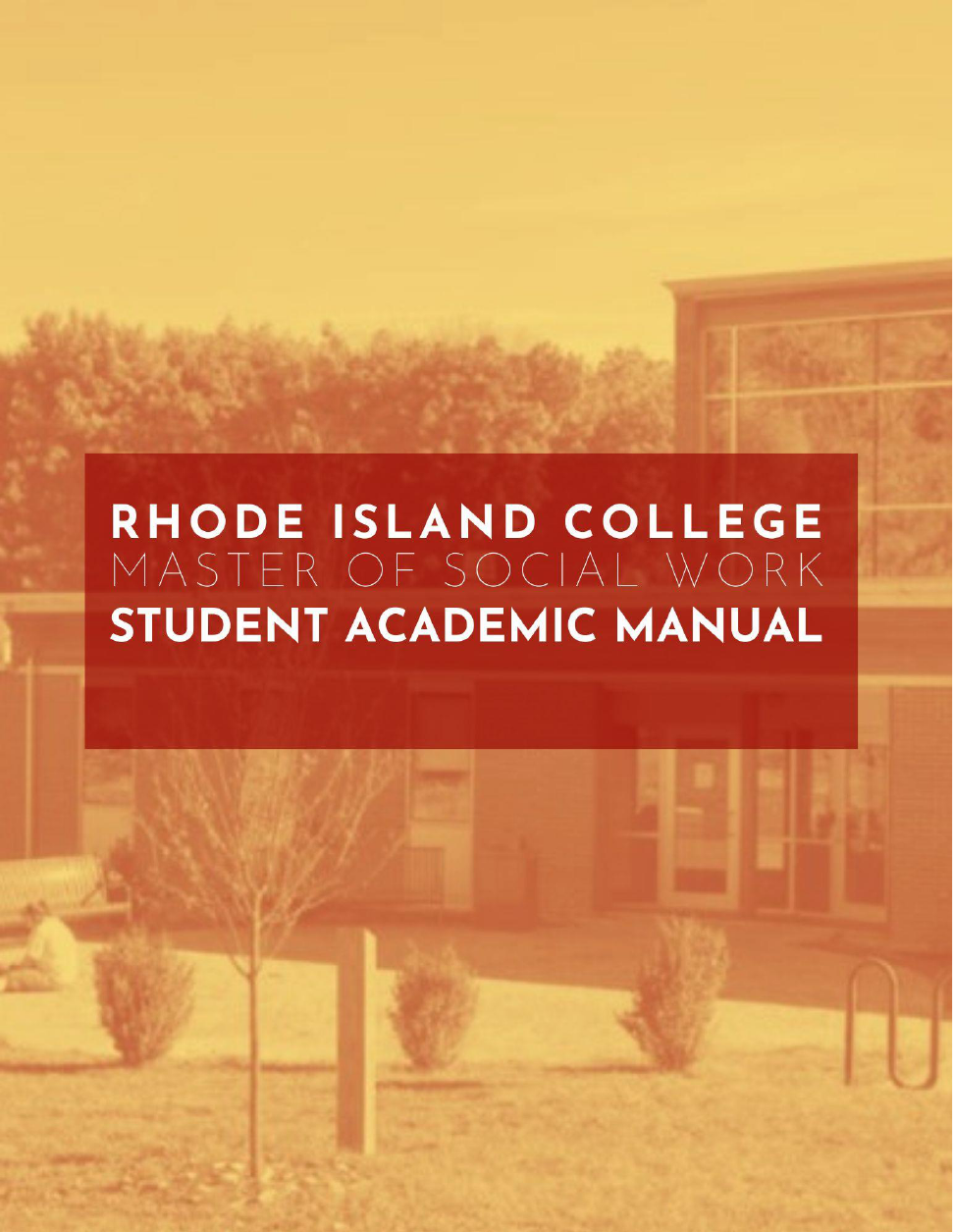
2024-2025
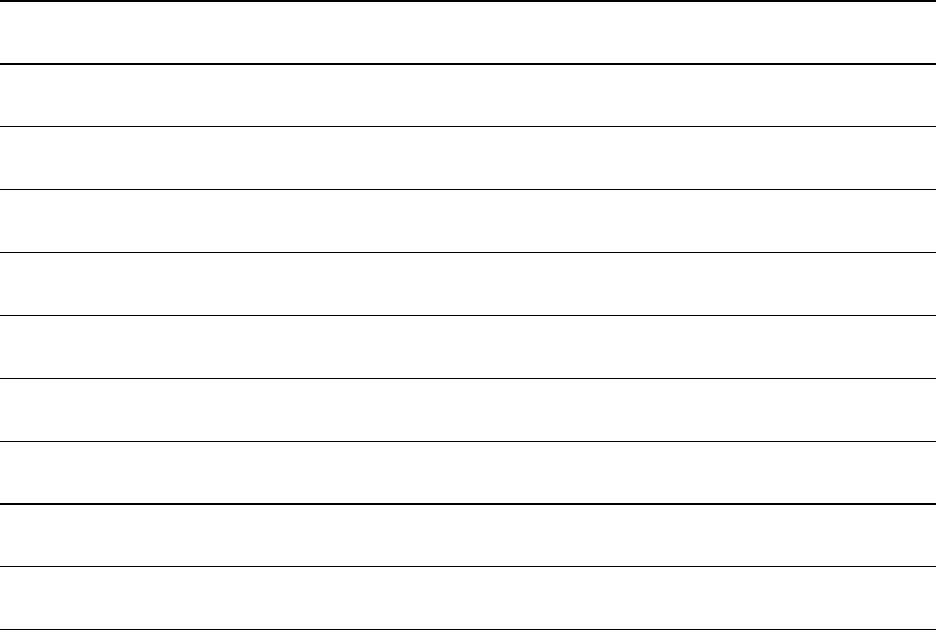
2
Table of Contents
PREFACE ............................................................................................................................................ 3
MISSION AND GOALS OF THE MSW PROGRAM ................................................................................... 4
CURRICULUM STRUCTURE OF THE MSW PROGRAM ............................................................................ 4
FOUNDATION COURSES ..................................................................................................................... 6
ADVANCED CURRICULUM—AREAS OF CONCENTRATION .................................................................... 7
FULL-TIME PROGRAM* ...................................................................................................................... 9
PART-TIME PROGRAM* ...................................................................................................................... 9
ADVANCED STANDING PROGRAM* .................................................................................................... 9
ADVANCED YEAR COURSES, CREDITS AND SEMESTER OFFERED ......................................................... 10
ACADEMIC POLICIES AND PROCEDURES ............................................................................................ 13
RHODE ISLAND COLLEGE SCHOOL OF SOCIAL WORK ACADEMIC STANDING COMMITTEE ................... 23
3
Preface
This manual contains the policies and procedures related to the Master of Social Work (MSW)
Program. We encourage you to read through it, use it often, and depend on it for a thorough
understanding of the program’s rules. When you have questions, let us know. We wish you great
success as you pursue the MSW Program. We welcome you and look forward to greeting you as
an MSW Colleague at the end of your educational journey.
The Master of Social Work Program within the School of Social Work was fully accredited by the
Council on Social Work Education in 2018 and will be accredited until 2026. It is a program with
a history of concern for social justice and a strong generalist perspective. Accreditation means that
our program is fully recognized by its peer schools and the Council. The program’s history means
that you are entering a program that believes people can learn, grow, and change. It recognizes
that people bring strengths and assets to their lives, and they bring challenges as well. Some of
those challenges may come from their environment and the efforts of social work must be directed
both at assisting individuals with their personal challenges and removing the barriers in their
environment that keep them from realizing their potential.

4
Introduction
Mission and Goals of the MSW Program
The School of Social Work at Rhode Island College prepares students for social work practice in
diverse communities throughout Rhode Island and southern New England, with individuals,
families, groups, organizations, and communities. We work to eliminate social injustice and
economic inequality in an effort to realize a just and equitable society. We seek to create, analyze,
and evaluate knowledge and to instill in students a deep understanding of the people and
communities they work with and the structural influences affecting their daily lives.
Vision Statement:
The Rhode Island College School of Social Work is a regional leader in making Rhode Island
and the Northeast a place where racial, social, economic, and environmental justice for all is the
norm. The faculty, staff, and students are diverse and reflective of the communities we serve,
challenging ourselves to think critically and act justly. We work together with our community
partners to educate and mentor developing social workers to use their social work practice to
engage in technologically innovative, critically reflective, and anti-oppressive practice and
leadership. We are accountable to local, national, and global communities. The school offers a
high-quality education experience, with a curriculum focused on evidence-based clinical
interventions, and social justice through bold action and advocacy.
MSW Program Goals
Graduates of the MSW program will:
• Engage in advanced-level social work practice that is informed by the best available
evidence
• Apply social work ethical principles to guide their professional practice
• Apply knowledge of human behavior and the social environment to work with individuals,
groups, families, organizations, and communities
• Understand the impacts of culture, oppression, and human diversity in a multicultural
society
• Advance social and economic well-being and deliver effective social work services through
policy practice
• Identify themselves as professional social workers and act accordingly
Curriculum Structure of the MSW Program
To earn an MSW graduate degree, students must complete 62 credit hours of classroom and
practicum, which can be completed in two years as a full-time student or four years as a part-time
student (can be extended to 6 years). Students with a BSW degree from a CSWE-accredited
undergraduate program who are granted Advanced Standing must complete 33 credit hours of
classroom and practicum experience at the advanced level. Advanced standing students complete
the program in one year, if full-time, and two years if part-time (can be extended to four years).
5
The curriculum is divided into foundation and advanced curriculum content. In the fall semester
of the student’s foundation year, full-time students develop a plan of study, working with their
advisor, that indicates their concentration – clinical or macro. Advanced standing students develop
a plan of study during their MSW orientation. The plan of study outlines the required and elective
classes that students intend to take.
Generalist Foundation Curriculum
The MSW program at the School of Social Work at Rhode Island College uses a generalist social
work practice framework as its foundation. The generalist perspective stresses that the social
worker focuses on social problems and human needs. The generalist approach recognizes the
connection between individual problems and challenges and public issues, between the individual's
well-being and the environmental conditions of their lives, and between personal and social
change. The social worker should recognize that an individual client does not need to change
simply because they have identified a problem and that the responsibility for social change is not
relieved just by developing legitimate personal change objectives with a client. The generalist
approach stresses that intervention should occur at the level of the system or systems that have
caused or contributed to the problems. Social workers must be prepared to intervene with
individuals, families, groups, organizations, and communities. The social worker must be prepared
to use a variety of theories, skills, and methods for client engagement, assessment, intervention,
and evaluation of the work. The curriculum of the MSW program introduces students to an
understanding of basic knowledge, such as systems theory, and skills in problem-solving common
to both macro (societal, community, organizational) and micro (individual, family, small group)
levels of practice.
Thus, the mission of the School of Social Work and the perspective of generalist practice intersect
as reflected in the following definition of social work practice: the process of responding to social
needs to promote the achievement of the fullest human potential and to prevent or alleviate
problems and disadvantages. Social work practice identifies the source(s) of the difficulty or
potential for enhancement, develops professional helping relationships directed towards change,
and builds upon the strengths and resources of those in need to intervene in ways that are consistent
with social work values and ethics. The goals of helping are to more equitably distribute resources,
empower those who are oppressed, and increase individual and societal well-being. Generalist
foundation content includes social work values and ethics, diversity and oppression, advancement
of social and economic justice, theories of human behavior, social work practice, research, social
policy, and practicum education.
During the foundation year, all students participate in the following courses:
• Human Behavior, Diversity, and Oppression: this sequence provides students with an
understanding of human development and growth concerning structural and environmental
factors that may enhance or impede functioning. It focuses on diversity and difference and
calls attention to experiences of oppression and injustice.
• Social Work Research and Evaluation and Data Analysis: these courses introduce students
to the role and value of research in social work, the development and building of evidence
to inform social work practice, the ability to evaluate practice, and the initial skills to do
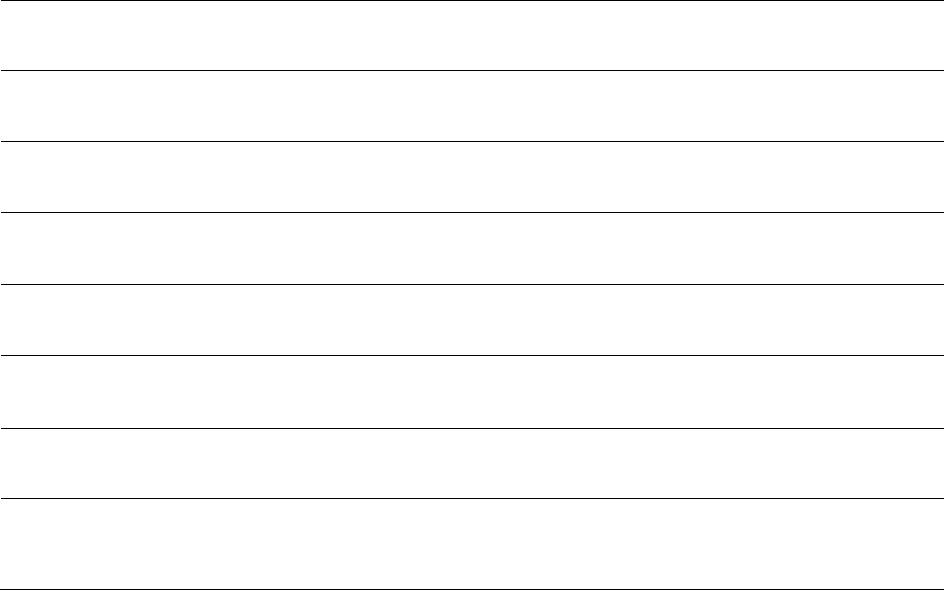
6
research in social work arenas. Students complete a research plan (quantitative or
qualitative) and in the second course, explore statistical, and qualitative, data analysis.
• Generalist Foundation and Skills: Policy and Organizing I and II; The first social policy
course familiarizes students with the history of social welfare and social work, and provides
a critical understanding of social policy, major social issues confronting society, and the
role of the social worker. In the second course, students plan for and participate in advocacy
and organizing efforts to develop skills in addressing public policy issues.
• Generalist Foundation and Skills: Direct Practice I and II: The social work practice
sequence establishes competencies in the problem-solving approach of generalist practice.
It stimulates awareness of self as a professional social worker and teaches skills for
working with individuals, families, and groups. Students learn skills and practice them.
• Practicum education offers an intensive social work practice experience in which students
have opportunities for supervised direct service to client systems, as well as for
involvement in advocacy and/or organizing. (Rhode Island College carries professional
liability insurance that covers all students during their tenure in the program, including
work in the field. However, we recommend but do not require, that you consider obtaining
your own individual liability insurance if you are concerned about specific protection.)
Foundation Courses
Students are required to take the following courses in the foundation year(s). Full-time students
complete these courses in one year. Part-time students complete these courses in two years.
Human Behavior, Diversity, and Oppression Sequence
SW 523
Social Work and Human Behavior
3
SW 524
Intersection of Oppression and Social Justice
3
Social Work Research and Evaluation
SW 541
Social Work Research and Evaluation I
3
SW 542
Social Work Research and Evaluation II
2
Social Welfare Policy Sequence
SW 530
Generalist Foundation and Skills: Policy and Organizing I
3
SW 531
Generalist Foundation and Skills: Policy and Organizing II
3
Social Work Practice Sequence
SW 532
Generalist Foundation and Skills: Direct Practice I
3
SW 533
Generalist Foundation and Skills: Direct Practice II
3
Social Work Seminar and Field Placement

7
SW 500
Field Experience and Seminar I
3
SW 501
Field Experience and Seminar II
3
Course Waiver Policy for Foundation Year Human Behavior and Research Courses
Students who have received an A or A- in BSW program courses, or equivalent undergraduate or
graduate courses, may request to take waiver examinations for Human Behavior, Diversity and
Oppression I and II (SW 523 & SW 524) and Social Work Research and Evaluation and Data
Analysis (SW541 & SW 542). Students should contact the Department Chair for approval to sit
for, and subsequent administration of, each waiver examination.
Advanced Curriculum—Areas of Concentration
There are two areas of concentration: Clinical and Macro (Policy and Administration).
Clinical Social Work Practice
The advanced clinical curriculum of the MSW program consists of two clinical practice courses
(SWRK 602 and SWRK 603) and a required assessment and differential diagnosis course (SW
636). All students enroll in the professional development seminar and a clinical evaluation and
case consultation course. Field placements must be related directly to the clinical concentration.
Students also choose three free electives. Current electives in clinical concentration include a wide
range of courses that focus on a varied number of issues. Please refer to our catalog to get the most
updated list.
The focus of these courses is on developing and strengthening clinical social work skills, which
include engagement, assessment, planning, intervention, and evaluation with individuals, couples,
families, or groups. Life transitions, populations at risk, and cognitive, affective, and behavioral
issues are examined from a person-in-situation perspective by using current theory and research.
Each of the courses includes content on substance use and abuse, mood disorders, and anxiety
disorders.
Macro (Policy and Administration) Social Work Practice
The macro practice curriculum consists of two required courses on macro practice and a mandated
political economy course. Students enroll in SW 628: Macro Practice I: Leadership & Change and
SW629: Macro Practice II: Managing People and Programs. Students also take a required elective
SWRK 621: Social Work and the Political Economy. All students enroll in the professional
development seminar and a macro research course. Field placements must be related directly to
the macro concentration.
The courses focus on developing knowledge and skills for management practice in organizations
and for policy practice in communities using current theory and research. In the fall, students
examine leadership styles, explore their own, and then identify the effect of leadership on large
system change efforts. Students learn about organizational practice through understanding human
8
resources – hiring, supporting, and evaluating staff – and a manager’s role in those processes.
Students design a program; they develop a proposal for funding that includes a budget for program
delivery and identify potential funders for their projects. In the fall course, students assess an
organization or community’s readiness for change and in the second course, they develop a plan
for bringing about change that improves or increases services to clients or client groups. The
political economy course provides a contextual framework for organizational and governmental
policy analysis and builds student skills in advocacy and persuasion. The curriculum is intended
to advance human rights and social and economic justice in organizational and policy practice
settings. Macro students also take three free electives.
Research Courses
All students are required to complete a two-semester research course in their advanced year. The
clinical research course explores clinical measures and asks students to prepare a clinical
assessment and evaluation of a client’s work and to explore varied instruments for measuring
clinical progress. The macro research course focuses on needs assessment and program evaluation.
In the fall, macro students develop two plans, one to create an asset map of a physical or social
community and the other to evaluate the effectiveness of an existing program. In the spring, each
student implements one of these plans. These courses meet twice a month, sharing a day and time
with field seminars. Professional Development Seminar All students enroll in this four-credit
course that explores advanced policy, ethics, and diversity content from the perspective of
individual student interest. Various faculty members will present material related to each of the
topics. Students will identify an area of interest and complete assignments related specifically to
their area of interest.
Professional Development Seminar
All students enroll in this four-credit course that explores advanced policy, ethics, and diversity
content from the perspective of individual student interest. Various faculty members will present
material related to each of the topics. Students will identify an area of interest and complete
assignments related specifically to their area of interest.
American Racism & Social Work Practice:
Institutional racism is a deep and pervasive part of the American experience. It influences the
daily experience of African Americans, other persons of color, and minoritized communities.
This course supports and builds upon concepts of privilege, power, and oppression explored in
SW 524. All students enrolled in this required elective will be encouraged to integrate concepts
explored in the classroom into their experiences in practicum.
Field Education and Seminar
Students enroll in the practicum for a 20-hour/week internship at the advanced level. The seminar
class meets every other week, on opposite weeks from sessions for advanced research. Field
9
seminar explores many issues regarding practice and internship, use of supervision, and
professional use of self.
Elective Courses
Students in both concentrations have two free electives from which they can choose. Included are
several 500- and 600-level courses. Students should check schedules before registration to
determine the specific courses offered in the upcoming semester.
Credit for Academic or Life Experience
The MSW program does not permit academic credit for life experience or previous work
experience.
Full-Time Program*
Students must complete two years of the required courses and elected courses, along with field
education. To be considered a full-time student, one must be enrolled in courses totaling nine credit
hours. To complete the current 62-credit hour curriculum within a two-year period, students will
need to plan on taking at least one summer or early spring course.
Part-time Program*
The part-time program can be completed in four years (can take up to 6 years). Students enroll in
Human Behavior, Diversity, and Oppression and in the research sequence in their first year in the
program. During their second year, they take the policy and direct practice foundation courses and
the foundation year field education seminar and placement. Students may take up to two additional
years to complete their advanced or concentration year. In the third year we recommend that
students enroll in advanced practice courses and advanced field seminar and placement. Finally,
in the fourth-year students finish their required courses and/or their electives. By taking electives
during summer sessions or in early spring semesters, part-time students can complete the program
in three and one-half years.
Advanced Standing Program*
The Advanced Standing program is available to students who have earned a BSW degree from a
program accredited by the Council on Social Work Education. The program must have been
accredited at the awarding of the student’s degree. Students begin the program at the start of the
advanced year, although the MSW program may require students to enroll in and successfully
complete summer bridge workshops before students begin the program. Students must complete
33 credits in field and academic courses to meet graduation requirements.
*We offer students a variety of program options, including an advanced clinical weekend program,
foundation year hybrid program, and advanced year hybrid (clinical and macro).
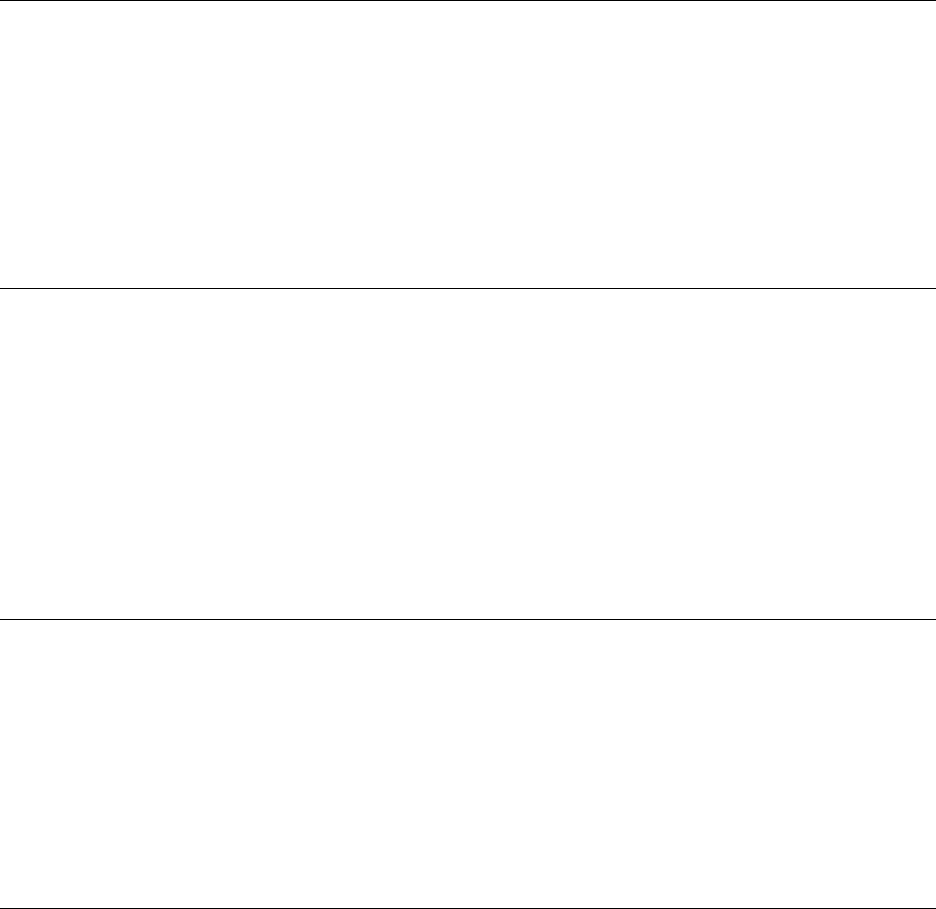
10
Advanced Year Courses, Credits, and Semester Offered
Full-Time Program (Clinical Concentration)
Third Semester (Clinical Concentration Full-Time Students)
SW 600
Field Education and Seminar III
4
Fall
SW 602
Clinical Social Work Practice I
3
Fall
SW 636
Differential Diagnosis
3
Summer/Fall
SW 644
SW559
Clinical Evaluation and Case Consultation I
American Racism & Social Work Practice
1.5
3
Fall
Fall/Spring/Summer
+
One Free Elective
3
Summer/Fall
Fourth Semester (Clinical Concentration Full-Time Students)
SW 601
Field Education and Seminar IV
4
Spring
SW 603
Clinical Social Work Practice II
3
Spring
SW 609
Advanced Professional Development
4
Spring
SW 646
Clinical Evaluation and Case Consultation II
1.5
Spring
+
One Free Elective
3
Total Credit Hours
62
Full-Time Program (Macro Concentration)
Third Semester (Macro Concentration Full-Time Students)
SW 600
Field Education and Seminar III
4
Fall
SW 628
Macro Practice I: Leadership & Change
3
Fall
SW 621
Social Work & The Political Economy
3
Fall
SW 645
SW559
Needs Assessment & Program Evaluation
American Racism & Social Work Practice
1.5
3
Fall
Fall/Spring/Summer
+
One Free Elective
3
Summer/Fall
Fourth Semester (Macro Concentration Full-Time Students)
SW 601
Field Education and Seminar IV
4
Spring
SW 629
Macro Practice II: Managing People & Programs
3
Spring
SW 609
Advanced Professional Development
4
Spring
SW 647
Needs Assessment & Program Evaluation II
1.5
Spring
+
One Free Elective
3
Total Credit Hours
62
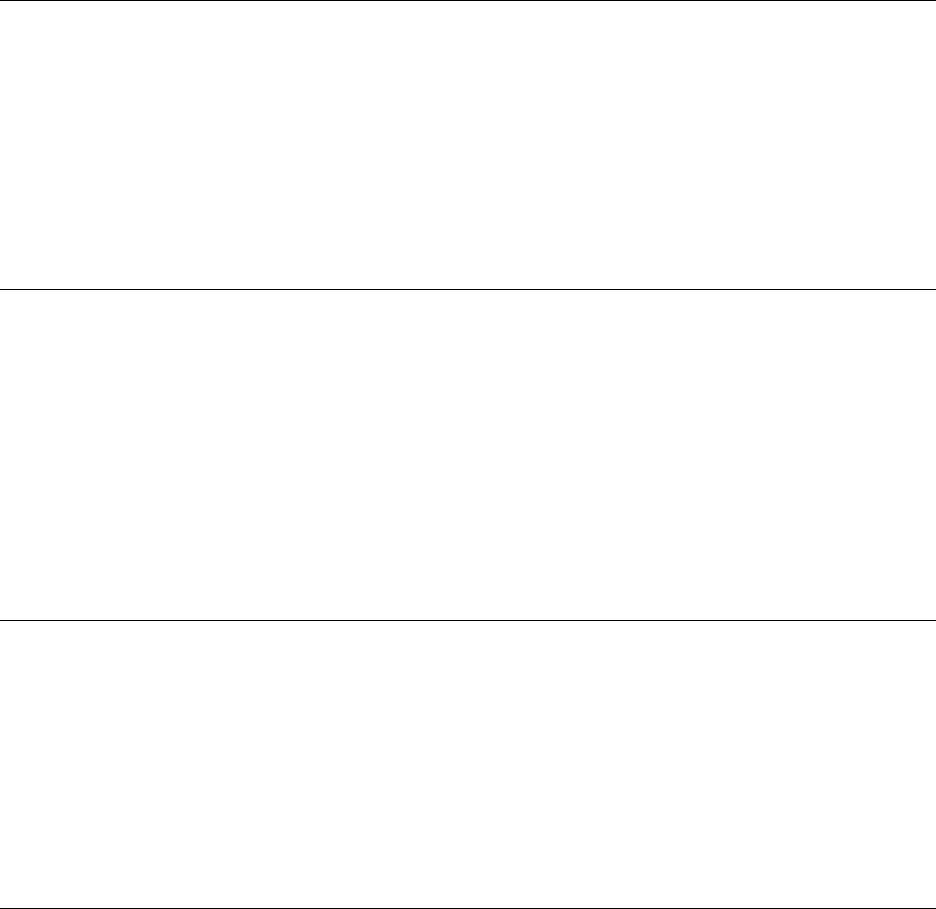
11
Advanced Standing Program (Clinical Concentration)
First Semester (Clinical Concentration Advanced Standing Students)
SW 600
Field Education and Seminar III
4
Fall
SW 602
Clinical Social Work Practice I
3
Fall
SW 636
Differential Diagnosis
3
Summer/Fall
SW 644
SW559
Clinical Evaluation and Case Consultation I
American Racism & Social Work Practice
1.5
3
Fall
Fall/Spring/Summer
+
One Free Elective
3
Summer/Fall
Second Semester (Clinical Concentration Advanced Standing Students)
SW 601
Field Education and Seminar IV
4
Spring
SW 603
Clinical Social Work Practice II
3
Spring
SW 609
Advanced Professional Development
4
Spring
SW 646
Clinical Evaluation and Case Consultation II
1.5
Spring
+
One Free Elective
3
Spring
Total Credit Hours
33
Advanced Standing Program (Macro Concentration)
First Semester (Macro Concentration Advanced Standing Students)
SW 600
Field Education and Seminar III
4
Fall
SW 628
Macro Practice I: Leadership & Change
3
Fall
SW 621
Social Work & The Political Economy
3
Fall
SW 645
SW559
Needs Assessment & Program Evaluation
American Racism & Social Work Practice
1.5
3
Fall
Fall/Spring/Summer
+
One Free Elective
3
Summer/Fall
Second Semester (Macro Concentration Advanced Standing Students)
SW 601
Field Education and Seminar IV
4
Spring
SW 629
Macro Practice II: Managing People & Programs
3
Spring
SW 609
Advanced Professional Development
4
Spring
SW 647
Needs Assessment & Program Evaluation II
1.5
Spring
+
One Free Elective
3
Spring
Total Credit Hours
33
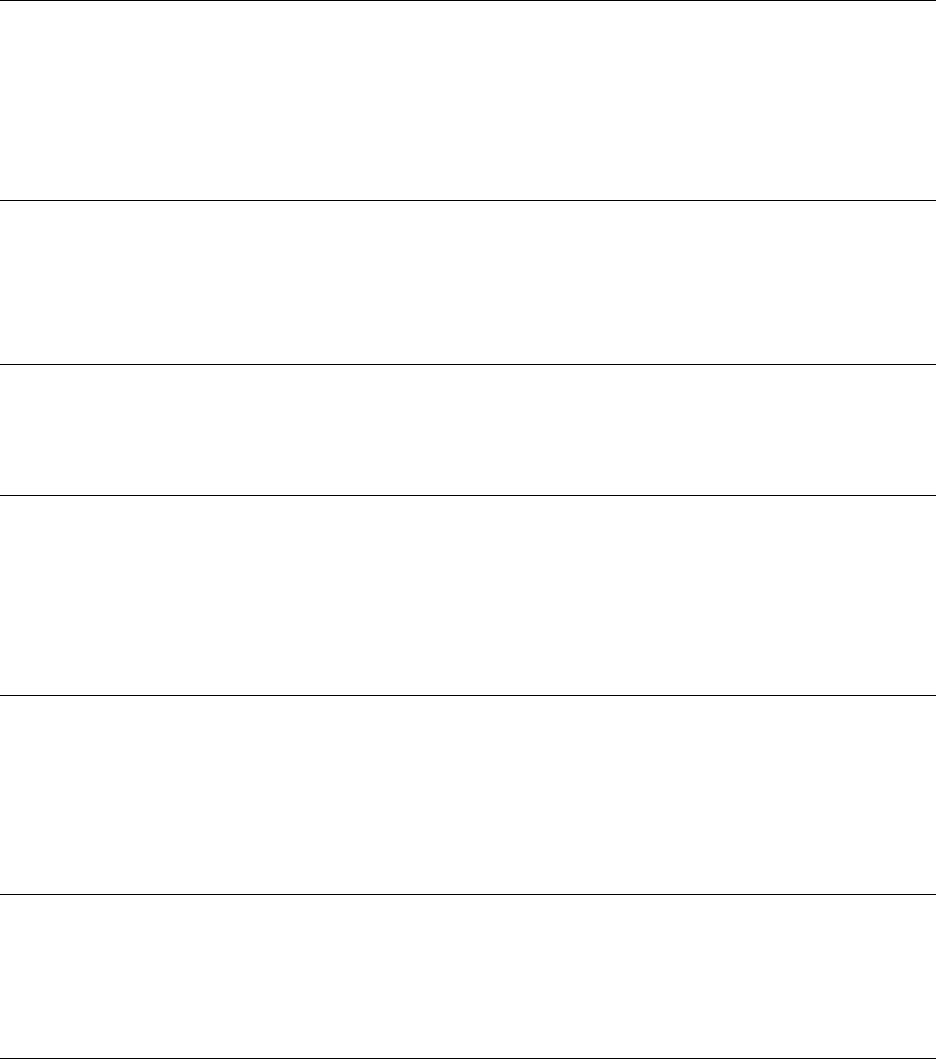
12
Part Time Students (Clinical Concentration)
Fifth Semester (Clinical Concentration Part-Time Students)
SW 600
Field Education and Seminar III
4
Fall
SW 602
Clinical Social Work Practice I
3
Fall
SW 636
Assessment & Differential Diagnosis
3
Summer/Fall
SW 644
Clinical Evaluation and Case Consultation I
1.5
Fall
Sixth Semester (Clinical Concentration Part-Time Students)
SW 601
Field Education and Seminar IV
4
Spring
SW 603
Clinical Social Work Practice II
3
Spring
SW 646
Clinical Evaluation and Case Consultation II
1.5
Spring
Seventh Semester (Clinical Concentration Part-Time Students)
SW 609
Advanced Professional Development
4
Summer/Spring
+
One Free Elective
3
Fall
Eighth Semester (Clinical Concentration Part-Time Students)
SW559
+
American Racism & Social Work Practice
One Free Elective
3
3
Fall/Spring/Summer
Spring
Total Credit Hours
62
Part Time Students (Macro: Policy/Administration Concentration)
Fifth Semester (Macro Concentration Part-Time Students)
SW 600
Field Education and Seminar III
4
Fall
SW 628
Macro Practice I: Leadership and Change
3
Fall
SW 621
Social Work and the Political Economy
3
Fall
SW 645
Needs Assessment and Program Evaluation I
1.5
Fall
Sixth Semester (Macro Concentration Part-Time Students)
SW 601
Field Education and Seminar IV
4
Spring
SW 629
Macro Practice II: Managing People and Programs
3
Spring
SW 647
Needs Assessment and Program Evaluation II
1.5
Spring
Seventh Semester (Macro Concentration Part-Time Students)
SW 609
Advanced Professional Development
4
Summer/Spring
+
One Free Elective
3
Fall

13
Eighth Semester (Macro Concentration Part-Time Students)
SW559
+
American Racism & Social Work Practice
One Free Elective
3
3
Fall/Spring/Summer
Spring
Total Credit Hours
62
Academic Policies and Procedures
MSW Program Policies
Academic Advisement
All matriculated students are assigned an advisor. The MSW Chair works with part-time students
not engaged in field education. The advisor for all students who are engaged in practicum
education is the faculty member who is a field liaison to the agency in which the student is placed.
The assignment of advisors for students in practicum education is for one year and may change in
the second year.
Completing the MSW Program
Six-year limit. Students must complete all requirements for the MSW degree within six years of
initial matriculation in the program. While a student may request a leave of absence, time on leave
counts toward the six-year time limit to finish the program. At the end of six years, the candidacy
will be terminated, and the Records Office notified by the MSW Chair. An appeal for an extension
would require the approval of the academic advisor, MSW Chair, and the Dean of the School of
Social Work.
Credits earned at Rhode Island College and elsewhere. Credits seven years or older may not
be counted toward graduation. This applies to both Rhode Island College credits and transfer
credits from other institutions. Thus, students must graduate prior to any of these credits reaching
the six-year anniversary.
Retention in the MSW Program
Any student who does not have a 3.0 grade point average (GPA) at the completion of the
foundation year will be dismissed from the MSW program. Any student who has a GPA below 3.0
in any semester will be placed on academic probation. Any student who receives a grade below a
B- in ANY course must repeat the course. Students dismissed due to a GPA below 3.0 who are
reinstated by appeal must repeat all required courses in which they have received a grade below
B.
Grade of F or U. A student who receives a grade of F or U in a course is automatically dismissed
from the MSW program. Such a dismissal is effective at the end of the appeal process. However,
a student may not continue in classes until the outcome of a grade appeal is decided. Any grade
below a C minus is equivalent to a grade of F.
14
Graduation requirements. To graduate from the MSW program, a student must have a 3.0 (B)
grade point average.
Performance in the field. Students who receive a grade of U for a field education course (SW
500, 501, 600, 601) are immediately dismissed from the MSW program. The faculty of the MSW
program reserves the right to dismiss from the program students who give evidence (as defined by
the College Handbook, the MSW program learning contracts, and/or the NASW Code of Ethics,
and the school’s professional code of conduct) of an inability to secure and/or maintain a field
placement and carry out field responsibilities at the master’s level. Such dismissal may be appealed
to the Academic Standing Committee.
Transfer of Credits
Transfer of non-social work credits. A student may transfer a maximum of six non-social work
but related graduate credits from Rhode Island College or another regionally accredited institution.
These credits must have been: (a) taken within five years preceding the transfer request; (b) a
graduate-level only course; (c) a course for which a grade of B or better was received; (d) not
applied toward receipt of another degree; and (e) in a related discipline. All credits must meet the
7-year rule to apply for graduation. Transfer credits must be approved by the Chair and the Dean.
Students transfer from other schools of social work. A limited number of students who have
successfully completed one or two semesters of work in an accredited MSW program at another
institution may be accepted into the MSW program at Rhode Island College. Transfer students
may receive up to 12 transfer credits and must complete at least 50 credits in the RIC MSW
Program as full- or part-time students. Field placement/seminar credits and hours are not
transferable. All courses taken at another accredited MSW program will be evaluated on a course-
by-course basis to determine the fit with the program at Rhode Island College. Transfer credits
must be approved by the Chair and the Dean.
Changes in Student Status
Normally, a full-time student will remain in full-time or part-time status throughout the program
and may not change from one status to another. However, if a student wishes to be considered for
a change in status for the remainder of their enrollment, they must submit a written request to the
chair of the MSW program to change status. The chair determines whether or not a change in status
will be permitted.
Leave of Absence
Students who plan to not register for courses in a given semester must request a leave of absence
in order to maintain their status as a matriculated student in the MSW program. Requests for a
leave of absence must be submitted to the Chair of the MSW program, giving a specific reason for
the request with a tentative date for return and a plan for completion of the program prior to the
beginning of the requested semester. The maximum request is for a one-year leave.
15
Independent Study
Students registering for an Independent Study must complete the Independent Study Form found
on the RIC Graduate Studies web page. The form must contain a full description of the subject to
be pursued as well as a description of the outcome and method of evaluation. The form must be
signed by the dean and the instructor who will supervise the project.
Report of Incomplete
A report of Incomplete shall be given in place of a grade when the work for the semester has been
passing but has not been completed because of illness or some other reason that, in the opinion of
the instructor, justifies such a report.
• The student must initiate the request prior to the last week of the class, unless the instructor
has specified an earlier deadline in the course syllabus, in which case, the instructor’s
earlier deadline supersedes the last week of class.
• Normally the student must initiate a request for an I grade; however, in extreme
circumstances, faculty members may assign this grade at their discretion (i.e., without
discussing it with the student).
• Incompletes are appropriate only if some or most of the work has already been completed
and the student is able to complete the remaining requirements with a minimum of faculty
supervision by the beginning of the next semester or by its end, depending on the course.
• The student and faculty member will reach an agreement regarding the work that the
student should complete to obtain a final grade, including the following:
o The contents of the work that needs to be completed;
o The date that the work will be completed (College policy requires that all
Incompletes be completed by the end of the next semester; in the MSW program,
this policy applies except where successful completion of one course is a
prerequisite to enrollment in the next semester, e.g., enrolling in SW 522 requires
successful completion of SW 520.
o The grade that will be assigned if the work is not completed.
• Contracts for approved Incompletes must be completed and signed by the student, the
instructor, and the department chair, and placed in the student’s folder prior to assigning a
grade of I.
Grade Grievances
Students who believe they have received a grade that does not represent their efforts or results and
wish to obtain a change of grade must first contact the faculty member within 14 days of receiving
the notice of the grade, to discuss their rationale for requesting a change of grade. The student and
faculty member should meet in person for this discussion.
If, after such a meeting, the matter of the grade is unresolved, the student should write a letter to
the MSW program chair requesting re-consideration of the grade. The letter should contain
relevant information about the student’s rationale, understanding of the faculty member’s
response, and an indication of the change the student is requesting.
16
Following the meeting, the chair will respond to the student in writing within seven days. The
letter will state the chair’s decision. If the student is still dissatisfied, they may appeal to the Dean
of the School of Social Work.
Policy on Plagiarism
Plagiarism is using the words of another as your own without quotation marks and/or the use of
another person’s ideas without citation. Use of material from the web or online sources without
citation is strictly forbidden. Plagiarism is a serious academic offense and is grounds for dismissal
from the MSW program.
Academic Dishonesty
Academic integrity is the foundation of the academic community. Students who violate College
rules on academic dishonesty are subject to disciplinary penalties, including the possibility of
failure of, or removal from, a course; disciplinary probation; and/or dismissal from the College.
Individual schools may have additional standards and policies related to academic honesty.
(a) Examples of Academic Dishonesty include (but are not limited to):
• Cheating: intentionally using or attempting to use unauthorized materials, information or
study aids in any academic exercise.
• Fabrication: intentional and unauthorized falsification or invention of any information or
citation in an academic exercise.
• Plagiarism: intentionally or knowingly representing the words or ideas of another as one’s
own in any academic exercise. The following are examples of plagiarism:
o Word-for-word plagiarism: This includes (a) the submission of another student’s
work as one’s own; (b) the submission of work from any source whatever (print or
electronic) without proper acknowledgement by footnote or reference within the
text of the paper; (c) the submission of any part of another’s work without proper
use of quotation marks.
o Patchwork plagiarism: This consists of piecing together of unacknowledged
phrases and sentences quoted verbatim (or nearly verbatim) from a variety of
sources. The mere reshuffling of other people’s words does not constitute original
work.
o Unacknowledged paraphrase: It is perfectly legitimate to set forth another author’s
facts or ideas in one’s own words, but if one is genuinely indebted to the other
author for these facts or ideas, the debt must be acknowledged by footnote or
reference within the text of the paper (e.g., the above paragraphs are based largely
on Sears, Harbrace Guide to the Library and Research Paper, p. 39).
Many facts, ideas and expressions are considered to be in the public domain or general
knowledge and need not be acknowledged (e.g., the fact that the Declaration of
Independence was signed in 1776; the idea that universal public education is essential to
the survival of democratic institutions; such proverbial expressions as “A rolling stone
17
gathers no moss”, or “New York is a great place to visit, but I wouldn’t want to live there”),
but as a general rule, when one is in doubt, it is best to acknowledge the source.
• Collusion: facilitating academic dishonesty intentionally or knowingly helping or
attempting to help another to commit an act of academic dishonesty.
• Deception: providing false information to an instructor concerning a formal academic
exercise, e.g., giving a false excuse for missing a deadline or falsely claiming to have
submitted work.
• Sabotage: acting to prevent others from completing their work. This includes cutting pages
out of library books or willfully disrupting the experiments of others.
• Multiple Submissions: Submitting for credit, when a student has not been given permission
to do so, any work that is the same or substantially the same as work that has been submitted
for credit in another course. Many professors allow reworking or building on prior work;
however, multiple submissions are permitted only with the prior permission of the
instructor(s), and only when the student acknowledges the multiple submission in the work
itself.
(b) Faculty Role
The faculty member has two clearly defined roles: first, to establish preventative measures;
and, second, to ensure that detected instances of academic dishonesty are dealt with
appropriately and reported.
Preventative measures should include a statement to each class by the faculty member
outlining expected standards of intellectual honesty and the necessity for such standards.
The faculty member should also maintain reasonable security of all examination materials
and procedures. Generally, the faculty member should employ any reasonable methods to
discourage acts of academic dishonesty.
A faculty member may take action up to and including failing a student accused of
academic dishonesty. Some often-used penalties include:
i. A low or failing grade on an assignment in which the offense occurred.
ii. An additional assignment.
iii. Reduction of the final grade up to and including failure.
iv. Any combination of the above.
In all cases, a report describing the nature of the dishonesty and the subsequent action taken
by the faculty member shall be filed with the Vice President for Academic Affairs. If this
is a first violation, unless egregious, the complaint will simply remain in a file in the
VPAA’s office. However, if a student has more than one reported incident (either in the
same course or in different courses), the student will have a hearing from the Academic
Standing Committee at the School of Social Work. Additionally, the faculty member may
recommend that the student have a hearing in front of the Academic Integrity Board
(https://www.ric.edu/department-directory/academic-integrity-board).
18
(c) Provost & Vice President for Academic Affairs Role
The Provost & Vice President for Academic Affairs shall maintain a file of any and all
reports of academic dishonesty. At the discretion of the VP for Academic Affairs and
depending upon the severity of the infraction, the student may be informed in writing about
possible consequences of further infractions.
In the case of multiple infractions, the Provost & Vice President for Academic Affairs will
refer the student’s name to the Academic Integrity Board for review and possible action.
(d) Academic Integrity Board’s Role
The Board shall consider cases referred to it by a faculty member or the vice president for
academic affairs and has the option to recommend any of the penalties ranging from those
available to the faculty member to placing the student on academic probation or expelling
the student from the College.
i. Appeal: Any student accused of academic dishonesty may appeal action taken by the
instructor in a case to the Board.
ii. Appeals Procedure
a. Appeals or referrals to the Board will follow the standard procedure of the Board.
b. The Board shall inform the student, the faculty member, and Vice President for
Academic Affairs of its decision.
c. A record of the cases concerning academic dishonesty will be kept in the Office of
the Vice President for Academic Affairs.
d. A student may appeal the decision of the Board (concerning academic dishonesty)
to the Vice President of Academic Affairs. Appeals may be considered on the basis
of new information or procedural errors.
Freedom of Expression
The faculty of the School of Social Work MSW Department recognizes the right of all members
of the academic community—including students, faculty and staff—to express their opinions. The
MSW Department faculty has a commitment to engage students in critical examination of diverse
ideological views, particularly with respect to their relationship to social work values. Discussion
and debate about diverse ideological views should be conducted in a manner that respects the rights
of others, consistent with the values, ethical principles and ethical standards contained in the
National Association of Social Workers Code of Ethics.
Criteria for Evaluating Academic Work
A. Written Work: Writing is an essential skill for social work practice. Students must
carefully proofread their papers for typographical, grammatical, sentence structure, and
spelling errors. Most papers begin with an introductory statement of purpose and an
overview of the ideas to be presented. The ideas must be discussed in a coherent, logical,
well-organized manner and must be supported by one’s own arguments, by research

19
findings and theoretical discussions from relevant literature, when appropriate. Each aspect
of the assignment must be thoroughly addressed. Citations and a reference list in proper
form must be included. These aspects of the paper are stressed in addition to the substantive
content because it is important that social workers know how to communicate with clients
and other professionals in writing that is concise, clear, organized and properly
documented.
B. Class Presentations: The purposes of the presentation are made clear at the beginning.
The presentation is well organized and articulately delivered. The presenter’s manner is
engaging. The presentation shows self-awareness, practice insights and skills, ample
integration of theoretical material from the readings and class discussions. The presenter
skillfully manages group discussion, by effectively eliciting it, focusing it, summarizing it,
and explicitly connecting it to the presentation’s stated purposes. Handouts are written
clearly, articulately, concisely and are germane to the topic.
C. Attendance and Class Participation: The student is expected to behave in a way that
demonstrates that they have integrated the core values and skills of the profession. This
means that the student attends each class session, arriving on time. Students who must be
late or absent (because of illness, for example), are expected to contact their instructor to
inform them of the absence and plan to complete the work they have missed. The following
policy applies in the MSW program:
Attendance is crucial to all students’ learning experiences. Students are expected to attend
all class meetings. Students who miss more than three hours of class time may not earn a
passing grade for the course.
The student’s oral participation should show an ability to make conscious, purposeful use of self
in interactions within the classroom; awareness of their own feelings, behaviors, and motivations;
receptiveness to feedback and an ability to integrate feedback into behavioral change; an ability to
make appropriate use of “airtime” in class, i.e., willingness to both use it and to limit one’s use of
it; a respect for difference and for other’s feelings, including a nonjudgmental attitude, sensitivity
to ethnic diversity and oppressed groups, respect for confidentiality and client self-determination;
an ability to contribute comments that are clearly stated and immediately germane to the focal
issues under discussion; and an ability to use the group to meet one’s own needs, while respecting
the needs of others. The student’s comments should show that assigned readings were completed
on time and were understood, that opinions are supported with data and/or logical argument and
that class content is integrated with field experiences.
For additional criteria for evaluating student performance, see the School of Social Work policies
below regarding (1) confidentiality in the classroom and (2) professional behavior.
Special Learning Needs
Students with special learning needs should inform their instructors, advisors, and field supervisors
early in the semester so that needed accommodations can be made to facilitate learning. Students
who require accommodation because of a disability are encouraged to contact the Office of
Disability Services at (401) 456-2776 or visit their website at https://www.ric.edu/department-

20
directory/disability-services-center. Students must be registered with the Center to request
accommodations in class and field.
Disability
The School of Social Work is committed to removing learning barriers and facilitating inclusion
throughout its curricula, specifically in the classroom learning environment and in field education.
We wish to offer an integrative, accepting, and facilitating environment that is conducive to
learning and professional growth for all students including those with disabilities. Students who
have disabling conditions are entitled to reasonable accommodation. We strongly encourage
students to self-identify and contact the Disability Services Center at (401) 456-2776 or visit their
website at https://www.ric.edu/department-directory/disability-services-center. Students must be
registered with the Center to request accommodations in the field.
Disability Services Center is the central resource for students with disabilities on campus. Staff
make every effort to verify and coordinate learning needs with faculty and to advocate for changes
in policies and procedures. By contacting this office and registering, students will learn about the
special services and equipment available to them. Moreover, registration assures students
compliance with guidelines requiring reasonable accommodation.
Confidentiality
The faculty of the School of Social Work recognizes the value and importance of each student’s
right to confidentiality. Students may request that specific information be shared with individual
members of the faculty, field instructors, and/or academic administrators is kept confidential. The
School of Social Work regards faculty, faculty advisors, field instructors, and school
administrators as members of each student’s educational team who may be consulted periodically
to discuss student progress. There are routine reviews of student progress at monthly MSW faculty
meetings. Information shared confidentially by a student will be shared with other team members
only when a team member deems it necessary to address a student’s educational needs. The
procedure for sharing such information will be to first inform the student of the issue to be
discussed; only after that will the issues/concerns be discussed. Discussions will include those
individuals directly concerned with the issue, such as the dean of the School of Social Work, the
chair of the department, the faculty concerned, the student’s advisor, and/or the director of Field
Education.
If a faculty member is unable to notify a student ahead of time, in person, the faculty member will
attempt to reach the student by email or phone. If contact is still not made, the faculty member will
send a written notice, return receipt requested, to the student’s address on file with the MSW
program. A follow-up meeting will be scheduled with the student.
The faculty of the School of Social Work recognizes the value and importance of free and open
classroom discussion. Students are encouraged to express opinions and offer observations relevant
to course content. In sharing information about others (e.g., clients in their practice), students are
expected to protect the confidentiality of those individuals. Other students in the classroom are
expected to treat classmates’ comments with respect and courtesy, and to protect the
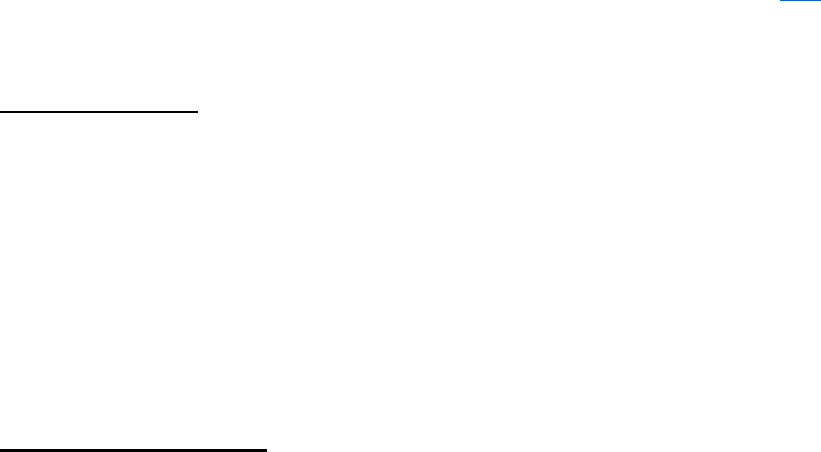
21
confidentiality of comments and observations offered in the classroom, to the extent possible under
law and college/school policy. Students are expected to refrain from divulging content of
classroom discussion to others outside of the classroom. The confidentiality of classroom
discussion cannot be guaranteed because of “duty to protect” and “mandatory reporting” laws
and/or other policies that may require disclosure.
In writing papers and in class discussions, it is important for students to disguise any potentially
identifying information about clients.
Professional Behavior
Students matriculating at the School of Social Work are preparing for entry into the profession of
social work. The behavior of professional social workers is outlined by the NASW Code of Ethics
and students are required to act in accordance with that professional code throughout their period
of matriculation, including but not limited to both field and classroom related learning. Failure to
adhere to the Code of Ethics or the Professional Code of Conduct described below may result in
review and action by the School of Social Work Academic Standing Committee.
Failure to meet generally accepted standards of professional conduct, personal integrity or
emotional stability requisite for professional practice, inappropriate or disruptive behavior toward
colleagues, faculty, or staff (at school or field placement) will be the basis for nonacademic
termination.
Please read the National Association of Social Workers (NASW) Code of Ethics here.
The following framework further outlines the policy on professional conduct:
Ethical Obligations
Students are ethically and professionally bound to:
• Adhere to the NASW Code of Ethics
• Appreciate the value of diversity by demonstrating effective and nonjudgmental
relationships in working with others who are different from oneself; and
• Adhere to all issues of confidentiality as they relate to human services, classroom activities
and field placement
Students are required to meet all of the following requirements to maintain good standing:
Professional Commitment
• A commitment to the goals of social work and to the ethical standards of the profession, as
specified in the NASW Code of Ethics. Behavior judged to be in violation of the current
NASW Code of Ethics may result in review and/or administrative action by the Academic
Standing Committee
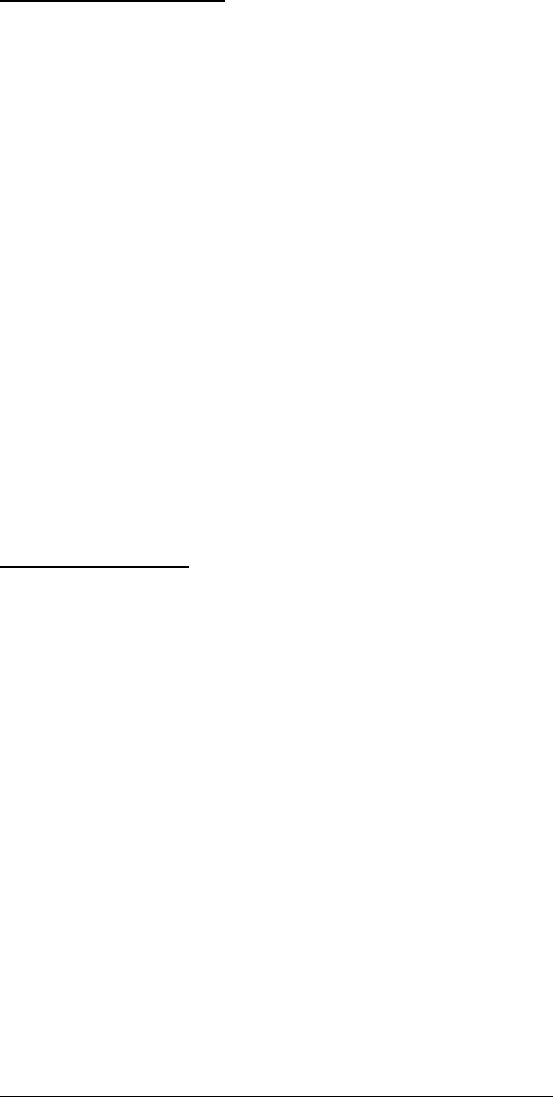
22
• A demonstrated commitment to the essential values of social work, which include respect
for the dignity and worth of every individual and the right of all people to a just share of
society’s resources (social justice)
Professional Behavior
• Compliance with program policies, institutional policies, professional ethics standards, and
societal laws in the classroom, field and community
• Appearance and personal demeanor reflective of a professional manner
• Sound judgment in decision making
• Responsible and accountable behavior including, but not limited to, practicing within the
scope of social work, respecting others, being punctual and dependable, prioritizing
responsibilities, attending class regularly, observing deadlines, completing assignments on
time, keeping appointments or making appropriate arrangements, and accepting
supervision and critiques in a positive manner
• Work and communicate with others to resolve issues in a manner that is direct,
professional, and geared toward problem resolution while avoiding triangulation
• Advocacy for oneself undertaken in an appropriate and responsible manner using proper
channels for conflict resolution
• Willingness to receive and accept classroom feedback and field supervision in a positive
manner to enhance professional development
• Professional and respectful interpersonal behavior with colleagues, faculty, and staff in
class, field, and the college community
Personal Behavior
Stress Management
• Use of appropriate self-care, resources, and supportive relationships with colleagues, peers,
and others to deal with current life stress that may affect scholastic and professional
performance
• Recognition of the need to seek support and appropriate coping mechanisms if personal
problems, psychosocial distress, and/or substance or mental health difficulties compromise
scholastic performance or interfere with professional judgment or behavior
Oppression and Discrimination
In accordance with the NASW Code of Ethics, the faculty of the School of Social Work condemns
any and all oppression of individuals or groups on the basis of race, ethnicity, gender identity and
expression, religion, sexual orientation, socio-economic status, age, veteran status or disability. In
addition, we reaffirm the Code’s receipts that social workers have a duty to fight discrimination
and other forms of injustice.
Statement of Non-Discrimination and Affirmative Action
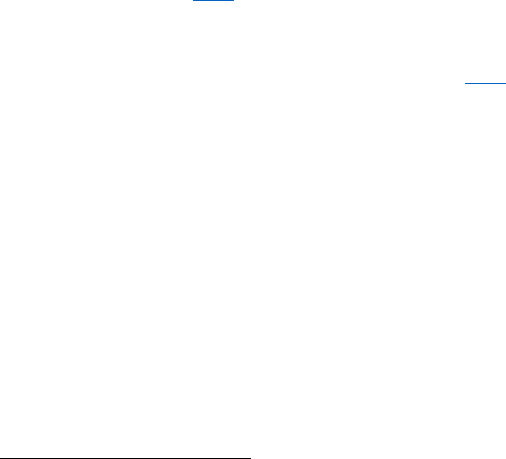
23
Pursuant to the philosophy of the Board of Education and Council on Postsecondary Education,
Rhode Island College prohibits discrimination, including harassment and retaliation, on the basis
of race, color, creed, national or ethnic origin, gender, gender identity or expression, religion,
disability, age, sexual orientation, genetic information, marital status, citizenship status or status
as a special disabled veteran, recently separated veteran, Vietnam era veteran, or any other veteran
who served on active duty during a war or in a campaign or expedition for which a campaign badge
has been authorized. Rhode Island College also prohibits all forms of sexual harassment and sexual
violence.
Should you encounter any type of discrimination and/or harassment, you are encouraged to contact
a member of the social work faculty/staff, a responsible college employee or the Title IX
Coordinator (click here for contact information and details on who is a responsible college
employee). Below is information on the Rhode Island College policies regarding
Nondiscrimination and Affirmative Action. Complaints of discrimination and/or harassment may
be filed with the College’s Title IX office (click here to access RIC’s Title IX office). Allegations
of violations of the Statement of Nondiscrimination and Affirmative Action are adjudicated
through the Office of Institutional Equity. If a person is found to be responsible for violating the
Statement of Nondiscrimination and Affirmative Action, they may be subject to additional
sanctions according to this policy.
Rhode Island College School of Social Work Academic Standing
Committee
Description and Procedures Composition of the Committee
The School of Social Work maintains an ongoing Academic Standing Committee.
Committee Responsibility
The Academic Standing Committee is charged with:
• Hearing all appeals/grievances, with the exception of grade disputes,
• Hearing cases of alleged unethical behavior involving students, and
• Recommending resolution of appeals/grievances to the appropriate program chair
The Academic Standing Committee may review any student’s performance in relation to the
application of the above policies. Dismissals from the MSW program and other consequences
resulting from violation of the policies stated in this manual may be appealed to the School of
Social Work Academic Standing Committee.
The Committee shall consist of up to eight members:
Two (2) BSW Faculty Up to Two (2) BSW Students
Two (2) MSW Faculty Up to Two (2) MSW Students

24
The faculty members are elected by the School of Social Work faculty and serve two-year terms.
The chair of the committee is elected from among the faculty representatives who are in their
second year of the committee. The chairs of the BSW and MSW departments cannot serve on the
Academic Standing Committee. The student representatives will be selected by the respective
student organization.
Procedures of the Committee
• Students have the right to due process in disciplinary action and can appeal any adverse
action.
• If students believe that the Committee’s recommendation provides no support for their
concern, they may appeal the recommendation to the appropriate program/department chair
in the School of Social Work.
• An appeal of the decision of the chair can be made to the Dean. Appeals to the decision of
the Dean can be made to the Vice-President for Academic Affairs.
Appeals/Grievances to the Committee
• Appeals/grievances to the Committee must be submitted in writing to the chair of the
Committee with all documentation.
• The appeals/grievance statement must include a summary of not more than one written
page stating the specific policy or policies violated or the exact nature of the grievance, the
specific actions upon which the appeal is based, and the remedy being sought.
Supplementary materials may be presented to support the grievance.
• Types of student grievances are as follows:
o Violation of established academic policies and regulations (e.g., examination
policies, advisement policies, and registration policies).
o Violation to student’s academic freedom.
o Grievances related to violation of the NASW Code of Ethics, the school’s
professional code of conduct, or the Rhode Island College policies on academic
integrity. This includes behavior that intimidates, threatens, or endangers the health
and safety of any person as well as behavior that, intentionally or negligently,
causes physical, financial or emotional harm.
o Appeal of dismissal from the program.
The student will discuss the grievance with the faculty or staff member involved in the complaint
who will attempt to resolve the grievance and render a written decision to the student within five
working days of the faculty member’s receipt of the grievance. Copies also will be forwarded to
the chair of the appropriate department in the School of Social Work and the Academic Standing
Committee of the School of Social Work.
The grievance should be presented in person to the faculty member involved as soon as possible
after the grievant feels that an abridgement of the grievant’s rights has occurred, but in no case
shall it be later than ten working days following the grievant’s knowledge of the act, event, or
commencement of the conditions which are the basis for the grievance.

25
If the grievance is not resolved, the student may submit the grievance in writing, within five
working days of the receipt of the decision of the faculty member involved, to the Academic
Standing Committee. Within five working days of receipt of the appeal, the Academic Standing
Committee will schedule a hearing, notifying the student and the faculty member(s) of the time
and place of the hearing (see Hearing Procedure).
In the case of a dismissal from either the BSW program or the MSW program, the student must
submit written appeal outlining the reasons for the appeal to the chair of the Academic Standing
Committee within five working days of the receipt of notification of dismissal. Within five
working days of receipt of the appeal, the Academic Standing Committee will schedule a hearing,
notifying the student and the faculty member(s) of the time and place of the hearing (see Hearing
Procedure). Reasonable efforts, including certified mail, non-certified mail, email, and attempted
phone contact will be made to notify the student.
If a student is dismissed from the program, they cannot enroll in or attend classes pending the
results of the appeal.
Hearing Procedure
• Prior to the hearing, the chair of the Committee shall notify the affected parties in writing
by certified mail, outlining the concerns before the committee. All written materials must
be submitted to the Committee members and affected parties 48 hours before the hearing.
The student shall notify the chairperson 48 hours before the hearing who their advocate(s)
will be (see advocate bullet below).
• Prior to the hearing, the student and involved parties have the right to access all information
that will be used by the Committee in the hearing.
• All material(s) distributed at the hearing will be returned to the chair of the Committee at
the conclusion of the hearing. This material will be stamped confidential and is not for
distribution. The material will be placed in a file in the dean’s office.
• The chair of the Academic Standing Committee will ensure that materials prepared for
Committee members and others contain all necessary copies of pertinent information.
• Hearings will be conducted in an informal manner, with both the student and members of
the Committee having the right to question all participants on relevant matters.
• The student has the right to be present throughout the entire hearing, except during the
deliberation and final voting of the Committee. They have the right not to testify or appear,
though the Committee will proceed with its deliberations and recommendations. However,
any committee member may request an executive session at any time; in that case, all non-
committee members will be asked to leave.
• Students may select an advocate to appear with them at the hearing. The advocate may be
a School of Social Work faculty member, field instructor, staff member, or another student.
The advocate does not have voting privileges. Under no circumstances will legal counsel
be permitted.
• Witnesses may elect not to make verbal presentations, but rather submit a written
statement, which must be submitted to the chair 48 hours prior to the hearing.
• Once people are finished presenting collateral information, they will leave the hearing
room.

26
• Recommendations of the Committee will be approved by majority vote of the faculty
representatives, though consensus will be sought.
• The chair of the Committee will send the student written notification of the Committee’s
recommendation by certified and regular mail within five working days. A copy of the
decision will be forwarded to the MSW Department Chair and the student’s faculty field
advisor.
• Appeals of the recommendation(s) made by the Academic Standing Committee must be
instituted in writing within five working days of the receipt of the recommendation(s) to
the chair of the MSW Department of the School of Social Work. All appeals must be based
upon existing documentation and no new materials may be presented.
The Chair of the MSW Department of the School of Social Work will either accept or reject the
decision of the committee. The Chair will notify the student in writing of their acceptance or
rejection within five working days of the receipt of the decision from the committee.
Appeal of the Chair’s decision may be made to the Dean of the School of Social Work. Appeals
must be instituted within five working days of the receipt of the Chair’s decision. The appeal must
be in writing and must explicitly identify the basis for the appeal. All appeals must be based upon
existing documentation and no new material may be presented.
Appeal of the Dean can be made to the Provost and Vice President of Academic Affairs (see
Manual of Academic Policies and Procedures).
